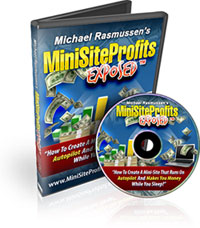It is virtually impossible to avoid having your email address end up on a spammer's mailing list. You can, however, take steps to minimize the amount of spam that you receive. Keep in mind the following:
# Never respond directly to any unsolicited email that asks you to update or verify your personal information. Banks, stores and other legitimate businesses will never ask you to give this information via email, particularly following the advent of phishing. If there is any doubt as to whether or not the email is from who it purports to be, contact the company immediately to confirm and clarify the request for information. Be sure to call a phone number from your statement. Calling the phone number in the email is probably a direct line to the identity thief.
# Never click on a link in any such email. To do so would be to risk downloading malicious Trojan horse spyware, which will install keyloggers in your computer system. This would provide hackers direct access to all the personal data stored on your computer, which they will use for their own nefarious financial gain.
# Never, ever fill out forms contained in an email that request personal information. The mere request for this information should ring a loud alarm bell. Phishers are able to use HTML to design very official-looking email messages. Any information entered into these forms goes directly to the phisher
# Never trust links contained in unsolicited email. Phishers have devised ways to spoof legitimate website links. Common tricks that are used include misspelling web addresses or using sub-domains that include the name of a legitimate business.
# Never, ever post your permanent email address publicly online. If you absolutely have to supply an address, or regularly participate in online forums but do not want further communication, camouflage your address in some way. You can, for example, disguise your address by writing it in such a way that humans can read it, but the spammers automated programs cannot. If you have a website, provide a feedback form instead of giving your email address.
# Do not use your primary email address when placing an online order, getting a free download, or want to sign up for a newsletter or free service Get a secondary email address that you can use in these instances. You can open a free email account for this purpose. Email providers such as GMail and yahoo offer this free email service.
# Choose an email address that cannot be easily guessed at. One method used by spammers to get email address is to generate a list of likely email addresses based on a combination of first names, last names and commonly used words.
# Be very cautious of opening any emailed attachments you receive, even if they seem to be from an acquaintance.
# Beware the Phisher Spam - Phishing is a tactic used by spammers to scam you into giving up vital personal and financial information. Its sole purpose is identity theft. Never divulge any personal or financial information that is requested in an email. Your bank or credit card company would never ask you to confirm or update your personal information via an email or a link in an email. Any such emails should be reported to the bank or credit card company. Never, ever click on any links in this type of spam.
# Do not cut and paste the link contained in the message into your browser. Type the address of the legitimate company in a separate browser window, so as to bypass having to click on the link in a suspected phishing email.
# Get a spam filter or spam blocker - Stop the spam dead in its tracks before it ever makes it into your inbox. Well, most of it at least. Though they are not 100% effective, anti-spam software will keep most of it out. Even if you only use the internet a spam filter will help protect you from spam.
# Always be suspicious of impersonal email. Almost all email communication from legitimate businesses will contain some specific piece of personal information that is not readily available to anyone but you. An email from your bank, for example may include part of your account number.
# Be sure to use anti-syware and anti-virus software, and keep these regularly updated. Anti-spam filter software may help eliminate or minimize the amount of phishing spam you will receive in your inbox.
# Help catch the phishers by reporting any phishing attempts. Forward the phishing email to the company that is being spoofed. Also forward it to these email addresses as well:
spam@uce.gov and reportphishing@antiphishing.org. This information will be used by the Anti-Phishing Working Group to fight phishing. This organization is a coalition between the internet industry, and financial institutions and law enforcement.
Get This Massive Collection Of 'How To' SEO Training Videos That Show The Easy Ways To Increase Your Online Profits, now: http://www.e-bestsellers.com/gseoaudio_0978.html
or,
Discover how to watch and learn while you sell & earn with this Massive Collection of Internet Business Training Videos: http://www.e-bestsellers.com/index.html
Always keep in mind that here are malicious people out there who do nothing more than think up creative, innovative ways to get at your personal information.
¤¤¤¤¤¤¤¤¤¤¤¤¤¤¤¤¤¤¤
Anne-Marie Ronsen is the author of many wealth and self development books. Download FREE e-books from http://www.e-bestsellers.com, http://www.plrbestsellers.com or http://www.universalpublishingltd.com ...You will learn about the best tips and recommendations to improve your health, weight and wealth. You'll also discover FREE Premium content at http://www.ibestof.com/ and Manual Submission Directory at: http://www.webdirectorybank.com
















No comments:
Post a Comment